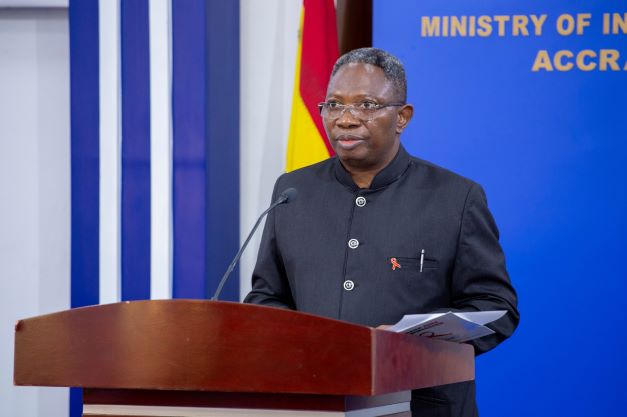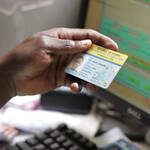As health facilities demand payment for NHIS services that should otherwise be free
The Ghana AIDS Commission (GAC) has appealed to health facilities to consider the plight of persons living with HIV and reduce out-of-pocket-payment on HIV services.
This is because the practice is compelling many of them to discontinue treatment.
Dr Kyeremeh Atuahene, the Director General of the Ghana AIDS Commission, said the intervention had become crucial as more than 32% of persons living with HIV (PLHIV) in 2021 alone discontinued treatment because they could not afford to pay.
“It is very concerning because the policy of the government is that, the full range of HIV services from testing to treatment and the entire scope of case management is supposed to be free,” he added.
However, the Director General said PLHIVs were made to pay due to the challenge of delays in NHIS fund releases to service providers and other related issues, including laboratory services.
He said that currently, GAC is expecting these facilities to work under the term of the NHIS.
Dr Atuahene General appealed to the Government, especially the Ministry of Finance to ensure that NHIS received its releases on time and in the right amount.
He said situations where PLHIV were discontinuing treatment clearly showed how deepening the situation was in inequalities concerning access to HIV services and access to health services in general.
“There should not be barriers to accessing health care services, especially for people living with HIV,” he stressed.
Dr Atuahene said as a country committed to achieving universal health coverage, the situation undermined the objectives and efforts to end HIV and AIDS by the year 2030 as well as commitments to living no one behind and must be fixed.
He urged the citizens of Ghana to support the funds established for people living with HIV.
An expenditure report detailing how funds received by the Ghana AIDS Commission (GAC) and spent over the last three years has shown that the GAC spent $323 million ($323,757,110) between 2019 and 2021.
The report, which is titled the National AIDS Spending Assessment (NASA) shows that on a yearly basis, the GAC spent about $88.6 million ($88,648,568) in 2019, some $107.2 million ($107,280,242) in 2020, and $127,8 million ($127,828,300) in 2021.
Even though the funding amounts have been increasing steadily over the last three years, it is worth noting that the total amount expended by GAC in 2019 ($88,648,568) was about $4 million less than the 2018 amount of ($92.5 million ($92,573,993).
International funding
The NASA report showed that more than 40% of the GAC’s funds came from donor sources.
In 2019, about 42% of the GAC’s funding, representing around $37.3 million ($37,323,398.6) came from foreign sources.
In 2020, the foreign component of the GAC’s expenditure was about 40%, which amounts to about $42.9 million ($42,912,096.8).
For 2021, donor partners provided about 41% of the GAC’s funds. This amounts to around $52.4 million ($52,409,603).
Public sector funding
Public sector funding as a proportion of the monies generated for the activities of the GAC for the 2019-2021 period declined sharply from the 2018 high of 51%, to 33% in 2019, 34% in 2020, and 34% in 2021.
This means that in 2019, about $29.2 million ($29,254,027.4) of the GAC’s funds came from the public sector.
In 2020, public sector funding for GAC’s expenses accounted was about $36 million ($36,475,282.3).
In 2021, it increased to a little over $43.4 million ($43, 461, 622,) of the GAC’s funding, representing about 34% of total expenses.
Private funds
Private funds, which are mainly out-of-pocket payments by individuals and some monies, generated by private organisations, increased sharply from 16% in 2018, to 25% in 2019, 26% in 2020 and 25% in 2021.
In monetary terms, this represents an increase in out-of-pocket payment of about $22.1 million ($22,162,142) in 2019.
The following year, 2020, this figure amounted to around $26.8 million ($26,820,060.5).
Meanwhile in 2021, the amounts of out-of-pocket payments made by people living with HIV and their relatives amounted to about $31.9 million ($31,957,075).
Some of the biggest donors towards HIV/AID care and prevention in Ghana include the government of the United States which spent $31 million ($31,048,624) in the three-year period, the Global Fund, which gave about $100 million in the period, as well as the United Nations Children’s Fund (UNICEF) which gave out about( $65 million ($65,843) in three years.
Spending areas
The NASA Report showed that the greater chunk of the monies generated went towards HIV care and treatment, with spending in this area ranging from 58% to 65% over the period
It was followed by ‘programme enablers and health system strengthening’ which took up just over a quarter of the expenses.
Third on the expenses list was HIV/AIDS prevention which received between 7.5% and 9.3% of total expenditure.




